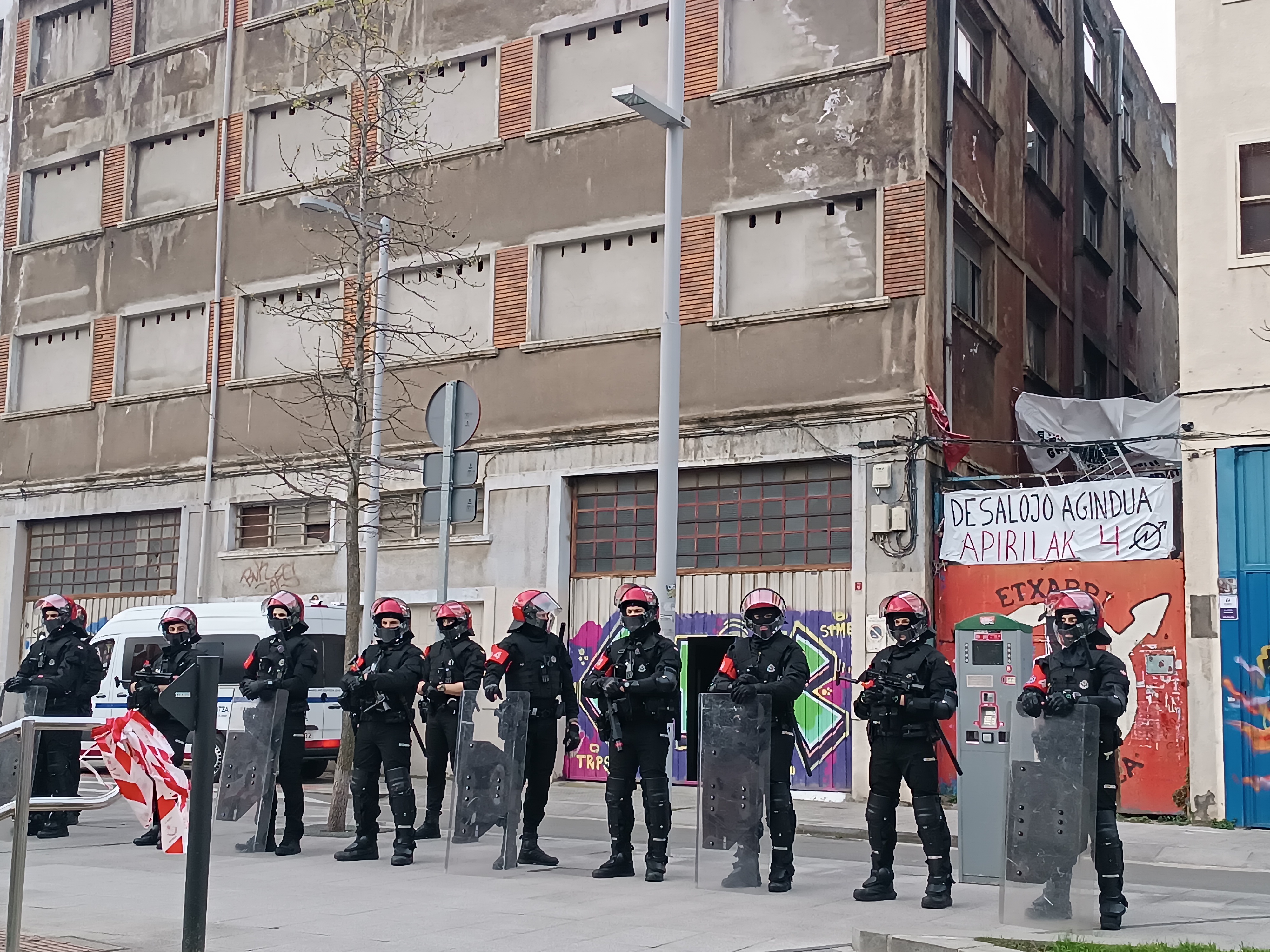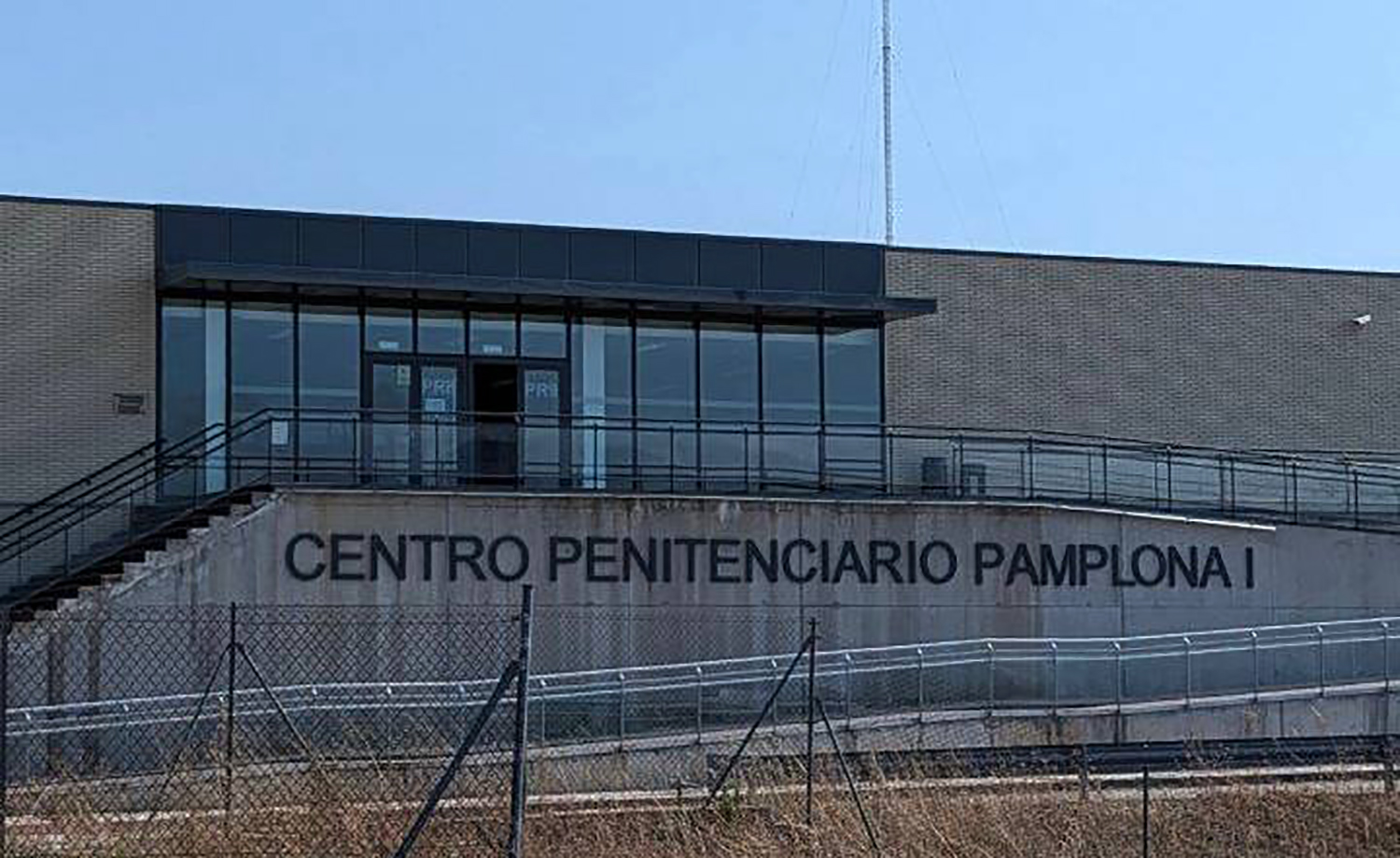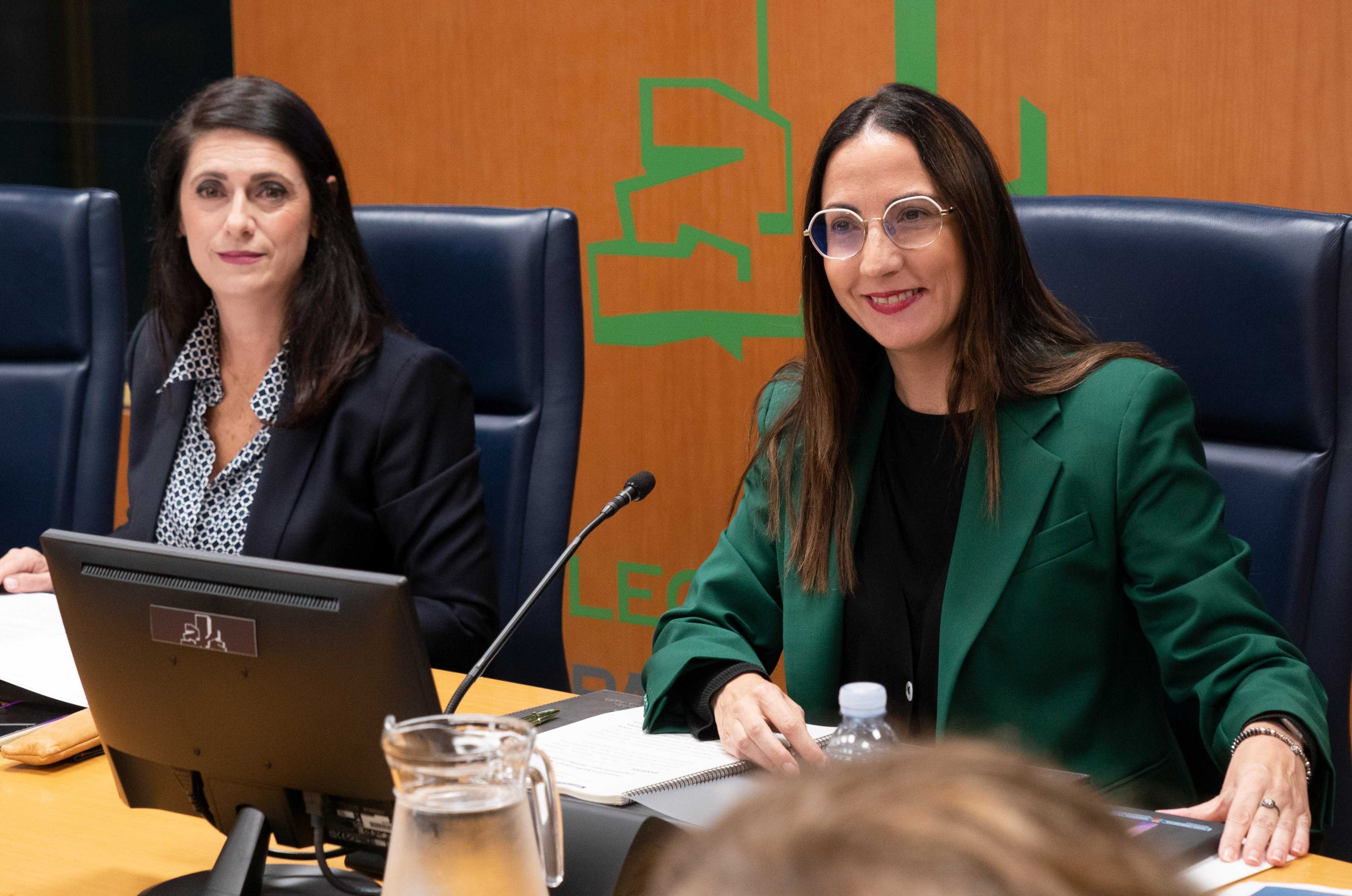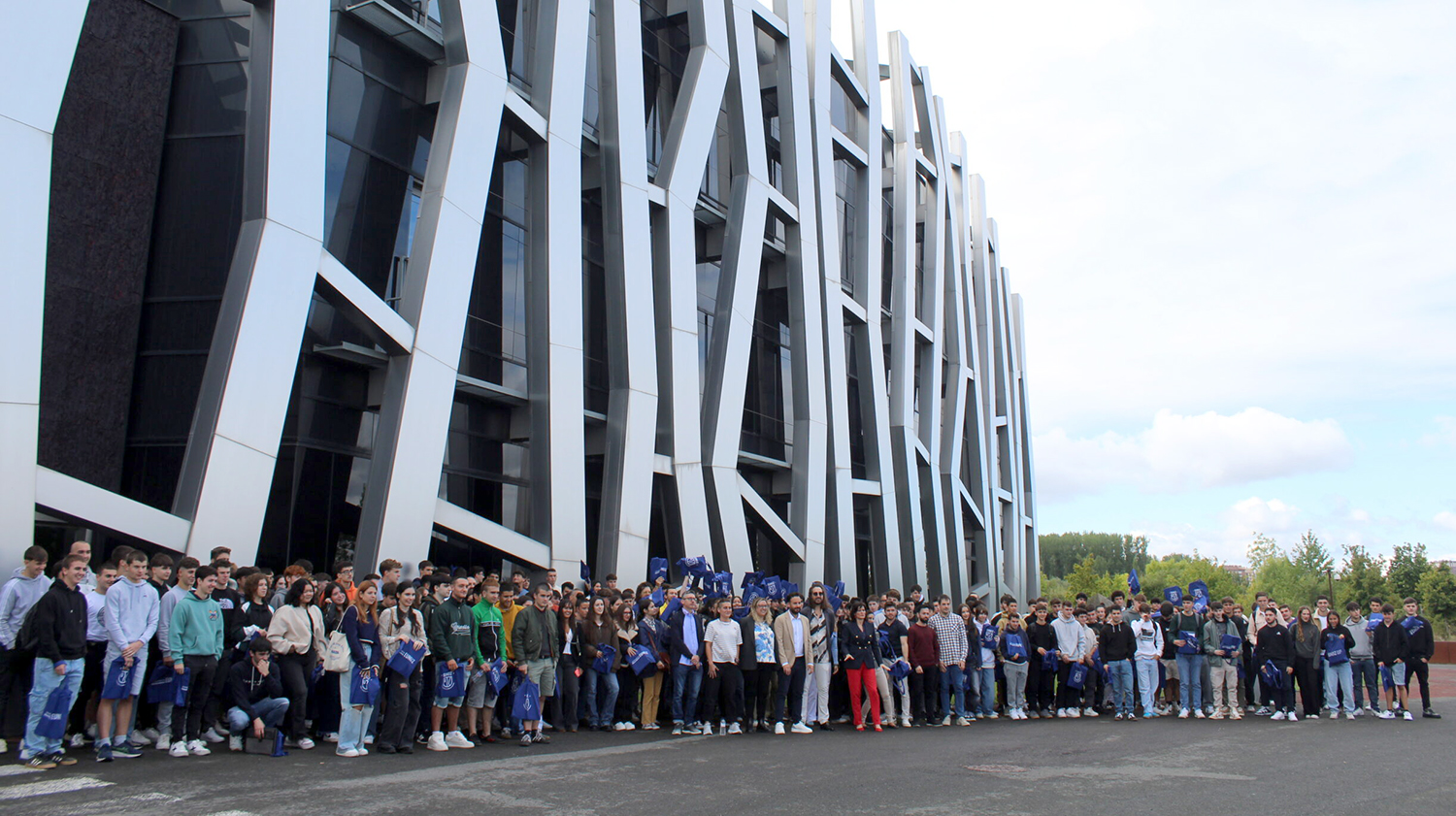A small world between social and political prisoners
- Asier Otxoa of Retana Simon and Gorka Lazkano Murua have served six and five years in prison respectively. Charged in the Otxoak summary of Jarrai-Haika-Segi, for alleged crimes of cooperation with ETA in the municipality of Lazkano. They met during the second half of the 2000s in the Topas prison in Salamanca. For a few years, they and other prisoners created a very close coexistence group, gaining space for the enjoyment and affinity of prison.

For Lazkano, jail is "a carpet with which society hides things that it doesn't want to deal with" and a "machine for grinding people." “The prison infantilizes the prisoner, robbing him of the capacity for personal self-management. Then, all of a sudden, you get fired by saying, 'Catch yourself' and you can't,' says Otxoa. “And create apathetic beings because you have everything done or imposed,” Cobos completes. All three know prison.
You found yourself in the prison of Topas, in Salamanca. How were they bonding?
A. Otxo: We are in the third module, in addition to Gorka, Urko and Oti were ‘comrades’. Santi came to me almost as a partner. It is not normal to find such trustworthy persons in prison outside the group of political prisoners.
S. Cobos: He had previously been in contact with many political prisoners. I learned a little bit about Euskera and tried to put it into practice. Then you can fix it better or worse, like on the street, and in our case it was the Cupid Arrow Stroke [generalized laughs]. By the time Asier arrived, we already had the chiringuito underway.
What was that ‘chiringuito’?
S. Cobos: We were a group dedicated to relationships and coexistence. We created a friendship without a spirit of liver, in jail it's not easy, because there's a lot of need. He was in a quiet moment in prison, no isolation, no beatings…
A. Otxo: We were seven to eight years old, three or four social and three or four political, with people coming in and out. That was the struggle, the idea of creating a space for enjoyment in the middle of that hostile atmosphere. We had a room, it was our space. After sharing the experiences of that time, it doesn't matter to spend years without seeing us. There is a special link.
Dr. G. Lazkano: We created our little world. Jail will not give you anything, to survive you have to build your life as you can, and finding close people to help you on that path is a treasure. Knowing Santi has enriched me, I've known another fight inside the jail.
Was the relationship between the officials poorly received?
S. Cobos: The prisoners who have escaped, those who have organized riots, the etarras, we were all together, imagine.
A. Otxo: And in addition, I laughed all day. We had a good time in those years, despite everything. We also had hard times, but in that sense I feel privileged. Above all, it greatly enraged the most perverse jailers.
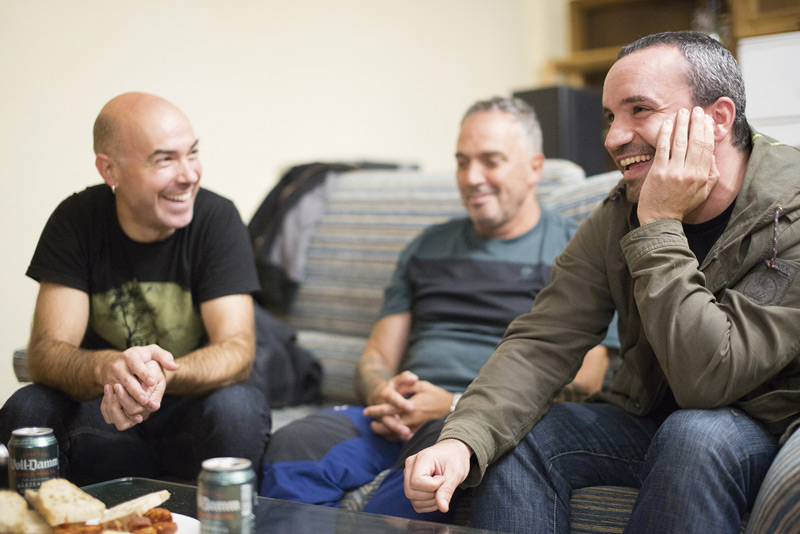
The historic prisoner of COPEL Pepe Villegas said that the officials had threatened him: “You will pay for continuing to relate to the Basques.” And he said he had paid it. Santi, have you been harmed by this kind of relationship?
S. Cobos: In my case it was different, because I was worse influenced than the Basque by officials [laughs generalized]. But I have often seen attempts to create enmity between Basque political prisoners and other prisoners. I remember, for example, the 11M day in the prison of Villabona [Asturies]. The officials even devoured the social prisoners and almost organized them to rebel against the Basques. They just told them not to use the pintxo, because otherwise they risk losing control.
A. Otxo: Social media has changed from module to being in touch with us, many times.
You have also kept your friendship out of jail.
A. Otxo: Gorka couldn't visit us after he left jail. I left after two and a half years and Santi continued in Topas.
S. Cobos: At that time, we maintained the relationship by letter and transmitting messages through family members, asking about each other. Then there was a transfer to Nanclares. On the day of my first permission to leave, they came to get me to jail with a friend of mine. From the third grade we have seen each other frequently. They served as guidance as I left. Gorka told me: “Here’s my house, for whatever you want.” Take care too.
What you built in Topas is not very common. What are the relationships between "social" and "political" prisoners?
A. Otxo: It is very difficult to find prisoners in prison who are as strong as Santi and others from Topas, which determines the relationship between the two.
Dr. G. Lazkano: There are tremendous family and personal situations. In addition, inside the jail you have to be very ‘man’, represent the hardness, do not count the weaknesses. I'm one of listeners and many of them came to tell me, they had to vent and be listened to. True dramas.
S. Cobos: There is a base: after all, you're in the same poop, you're in jail. That's what makes them join at least one level. I, in general, have seen the Basque prisoners behave well with the social partners, either to give them a cigarette or to be accompanied by a letter. And social respect, beyond political closeness.
NOTE: This interview is part of a comprehensive report. The other part is the life of Santi Cobos.
A few weeks ago, on Diputación Street, in the centre of Vitoria-Gasteiz, two men threw a homeless person off the small landing outside the place where he slept. In addition to being thrown away, a metal railing was immediately placed in front of the lonja. Although the place... [+]
Gozamen aparta bezain deskribatzeko zaila dakar, norbaiten hitzak irakurri edo entzun ostean, zera pentsatzeak: “Horixe zen neu aurreko hartan azaltzen saiatu nintzena!”. Idazlea eta itzultzailea da María Reimóndez, eta galegoz aritzen da, hizkuntza... [+]
Bizitza erdigunean jartzeko abagunea ikusi genuen feministok zein ekologistok Covid-19 pandemia garaian. Ez ginen inozoak, bagenekien boteretsuak eta herritar asko gustura itzuliko zirela betiko normaltasunera. Bereziki, konfinamendu samurra pasa zutenak haien txaletetan edo... [+]
Haurtzaroaren amaiera eleberri distopikoa idatzi zuen Arthur Clarkek, 1953. urtean: jolasteari utzi dion gizarte baten deskribapena. Eta ez al da bereziki haurtzaroa jolasteko garaia? Jolasteko, harritzeko, ikusmiratzeko eta galdera biziak egiteko unea. Ulertzeko tartea zabalik... [+]
Egypt ' s urban planning plan for the Gaza Strip has recently been expanded. A drawing shows the streets, buildings and imagery of the future on a reality that still smells of shrapnel and explosives. The urban planning proposal, used as another bomb shot. Individual house... [+]
Segurtasun falta dagoen irudipena handitu dela azaldu du Eustaten azken txostenak. Gurean, Trapagaranen, Segurtasuna orain, delinkuenteen aurka manifestaziora deitu dute herritar batzuek.
Bi izan dira sentsazio hori zabaltzeko arrazoiak. Batetik, udalak Udaltzaingoaren... [+]











